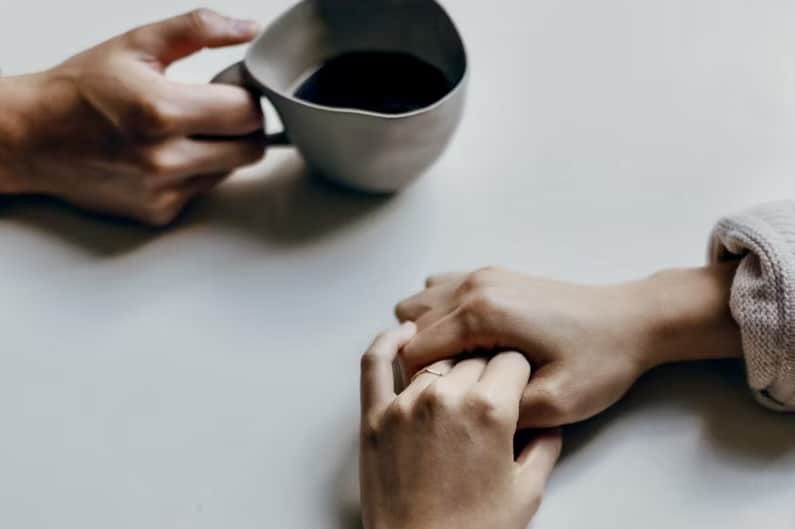Checking Out Different Approaches in Counselling for Stress And Anxiety Problem for Lasting Adjustment
When dealing with anxiety conditions, it's vital to explore a selection of therapy methods. Each approach provides distinct understandings and tools to assist you handle your signs and symptoms effectively. You may find that integrating strategies can generate the most effective results. Nonetheless, understanding the subtleties of these approaches is essential to fostering long lasting change. What happens if the ideal combination could launch a brand-new level of psychological well-being for you?
Comprehending Stress And Anxiety Disorders: A Quick Summary
Anxiousness conditions, which affect numerous individuals worldwide, can substantially influence every day life. You may experience overwhelming feelings of concern or fret that seem uncontrollable. These sensations can cause physical signs like an auto racing heart, sweating, or also lightheadedness. Usual kinds of anxiety problems consist of generalised anxiety condition, panic attack, and social stress and anxiety disorder. Each has distinct indicators, yet they all share a propensity to disrupt your routine and relationships.Understanding the origin of your stress and anxiety is crucial. It could come from genetics, mind chemistry, or life experiences. Recognizing your triggers can aid you handle your reactions better. It's vital to keep in mind that you're not the only one in this battle. Numerous people encounter similar difficulties, and seeking help is a strong action towards feeling much better. By learning more about anxiousness disorders, you're currently on the path to understanding and handling your problem better.
Cognitive-Behavioral Treatment: Challenging Unfavorable Thought Patterns
In Cognitive-Behavioral Therapy, you'll start by identifying the negative idea triggers that add to your anxiousness. When you acknowledge these thoughts, you'll work with changing them with even more favorable choices. With each other, you'll develop effective coping methods to assist handle your anxiousness in day-to-day situations.
Determining Unfavorable Idea Triggers

When you run into minutes of distress, identifying the particular triggers behind your adverse ideas can be essential in handling anxiety. Start by paying focus to scenarios that prompt sensations of concern or anxiety. Is it a jampacked room, a future due date, or a discussion with specific individuals? Write down these instances in a journal. This will certainly aid you identify patterns in your reasoning. Likewise, notice physical sensations that accompany your adverse ideas, like a racing heart or rigidity in your breast. By pinpointing these triggers, you obtain insight right into what's fueling your anxiousness. Comprehending these connections is the primary step in challenging those ideas and eventually gaining back control over your emotional reactions.
Changing Thoughts With Positives
Testing unfavorable thought patterns is a crucial action in transforming your state of mind and minimizing anxiety. You might commonly locate on your own entraped in cycles of self-doubt or disastrous thinking. As opposed to allowing these ideas determine your sensations, practice replacing them with positive affirmations or practical choices. When you think, "I can't manage this," change it to, "I can take care of obstacles one action at a time." This simple adjustment can substantially influence your emotion. Routinely identifying and countering these unfavorable ideas aids develop a healthier interior dialogue. Keep in mind, it takes some time and initiative, yet constantly practicing this technique can cause lasting adjustment, equipping you to deal with anxiety with restored confidence and resilience.
Building Coping Methods Together
Replacing adverse thoughts is only the beginning of handling anxiousness effectively. To create long-term modification, you require to build coping strategies that encourage you. Cognitive-Behavioral Therapy (CBT) assists you determine and challenge those purposeless idea patterns. With each other, you and your counselor can discover how these ideas influence your feelings and behaviors.Start by establishing sensible techniques, like journaling or mindfulness exercises, that enable you to challenge anxiousness head-on. When you encounter your concerns slowly, you'll learn to react differently.

Mindfulness and Acceptance-Based Approaches: Growing Present-Moment Awareness
As you browse the complexities of stress and anxiety, including mindfulness and acceptance-based techniques can substantially improve your ability to grow present-moment understanding. By concentrating on the present moment, you'll locate that you can observe your thoughts and sensations without judgment (Counseling services for anxiety). This technique assists you acknowledge your anxiety without really feeling overwhelmed by it.Engaging in mindfulness exercises, such as deep breathing, body scans, or guided reflections, enables you to ground on your own in your current experience. Acceptance-based techniques motivate you to welcome your emotions as opposed to battle versus them. When you accept your sensations, they lose their power over you.Incorporating these methods into your daily regimen can transform how you react to stress and anxiety. You'll develop durability and find out to browse demanding situations with better convenience. Inevitably, growing present-moment recognition lays the structure for long-term modification, empowering you to lead a much more fulfilling life
Exposure Therapy: Facing Fears Gradually
Exposure treatment helps you confront your anxieties in a progressive means, making it much less overwhelming. You'll find out techniques to encounter anxiety-provoking circumstances detailed, while also developing coping approaches to handle your responses. This strategy encourages you to take control and minimize anxiety gradually.
Progressive Direct Exposure Strategies

When encountering stress and anxiety, progressively facing your fears can be a powerful method to restore control. This strategy, referred to as progressive exposure, involves gradually exposing on your own to the circumstances or objects that cause your anxiety. Start with much less daunting scenarios and progressively work your means up to more difficult ones. If you're scared of public talking, you might begin by talking in front of a mirror, then progress to sharing ideas with a friend, and eventually deal with a little group. Each action assists desensitize you to the anxiety, building your confidence with time. Keep in mind, it's vital to pace on your own and celebrate small success as you move via this process, reinforcing your capacity to manage stress and anxiety effectively.
Structure Coping Strategies
Structure effective coping approaches is vital for taking care of stress and anxiety, especially as you challenge your concerns slowly - Counseling services for anxiety. One effective technique is direct exposure therapy, where you start by encountering your fears in a controlled fashion. Start with less frightening circumstances and slowly work your means as much as even more tough situations. This gradual exposure assists desensitize you to stress and anxiety causes, making them less overwhelming.Incorporate leisure techniques, such as deep breathing or mindfulness, to calm your mind throughout direct exposure. Track your progression, commemorating tiny victories along the method to improve your self-confidence. Keep in mind, it's okay to take your time; the objective isn't excellence however stable enhancement. By developing these strategies, you'll equip yourself to browse anxiety and embrace life a lot more completely
Psychodynamic Therapy: Uncovering Origin Reasons of Anxiety
Psychodynamic treatment discovers the subconscious mind, exposing the root triggers of your anxiety. By analyzing your ideas, feelings, and previous experiences, this technique helps you uncover underlying disputes and unsettled problems that may add to your current anxiousness. You'll deal with a specialist to examine youth experiences, connections, and emotional patterns that shape your actions today.As you gain insight right into these deeper layers of your subconscious, you'll start to recognize just how previous occasions affect your present actions. This understanding can lead to catharsis, allowing you to therapy for anxiety process emotions you could have suppressed.Through the therapeutic relationship, you can additionally identify defense reaction that may have created in time, providing a clearer path to transform. Eventually, psychodynamic therapy furnishes you with the tools to address your stress and anxiety at its core, advertising enduring change in your emotional health.
Alternative and integrative Approaches: Incorporating Methods for Greater Efficiency
Integrating various healing techniques can improve your journey towards taking care of anxiety better. By incorporating elements from cognitive-behavioral therapy, mindfulness methods, and all natural techniques, you can produce an individualized strategy that addresses your special demands. You may utilize cognitive-behavioral methods to test negative thought patterns while integrating mindfulness exercises to ground on your own in the existing moment.Additionally, discovering holistic methods such as yoga exercise or meditation can advertise leisure and minimize stress and anxiety signs. This mix allows you to develop higher self-awareness and resilience.Experimenting with these diverse approaches can assist you discover what resonates most with you. Remember, it has to do with discovering a synergy that functions, instead of staying with a single method. This integrative strategy not just uses prompt relief however also promotes long-lasting abilities for managing anxiety, empowering you to recover control over your life.
The Role of Assistance Equipments: Structure Durability Via Link
While it might seem that taking care of anxiety is a solitary trip, having a solid support system can play an important function in your resilience. Surrounding on your own with compassionate close friends, household, or support teams produces a risk-free room where you can openly share your sensations and experiences. You remind on your own that you're not alone in this struggle.These relationships supply inspiration and can supply functional coping approaches that have worked for others when you link with others. It's also a possibility to acquire viewpoint; good friends can aid you see situations in different ways, minimizing feelings of isolation.Moreover, emotional assistance promotes a sense of belonging, which can substantially minimize anxiety symptoms. By leaning on your support group, you can develop strength and deal with difficulties better. Bear in mind, reaching out for assistance suggests strength, and it can make all the distinction in your trip towards managing stress and anxiety.
Regularly Asked Concerns
What Are the Typical Signs And Symptoms of Anxiety Problems?
You may experience restlessness, exhaustion, trouble concentrating, irritation, muscle mass stress, and sleep disruptions. Physical symptoms can include quick heart beat, sweating, and trembling. Acknowledging these indicators early can aid you look for appropriate assistance and therapy.
How Lengthy Does Treatment Generally Last for Anxiousness Problems?
Therapy for anxiousness problems generally lasts anywhere from a few weeks to a number of months. It actually relies on your individual needs, progression, and the methods your therapist makes use of to help you handle your anxiety successfully.
Can Medication Be Made Use Of Together With Therapy for Anxiety?
Yes, drug can absolutely be used alongside treatment for stress and anxiety. Integrating both strategies frequently improves treatment performance, assisting you manage signs and symptoms while discovering underlying problems through counseling (Counseling services for anxiety). Always consult your doctor for individualized guidance
Exist Self-Help Strategies for Taking Care Of Stress And Anxiety?
Yes, there are several self-help approaches for managing anxiety. You can practice mindfulness, participate in routine workout, keep a well balanced diet, develop a regular, and use deep breathing techniques to help in reducing anxiousness symptoms successfully.
How Do I Know if I Required Expert Assistance for Stress And Anxiety?
